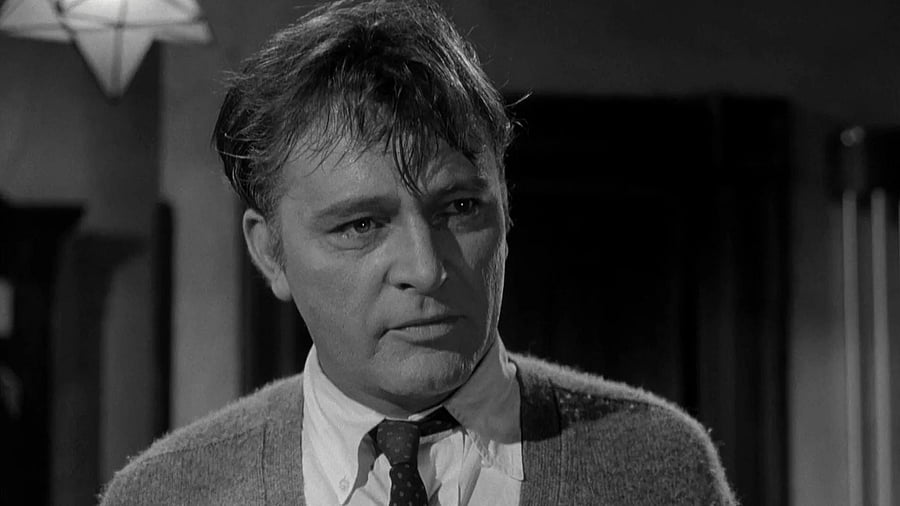
British actors with a theatre background have brought something very specific to cinema — their voice and articulation. And they have been cast in films accordingly. Among the greatest and most senior of these are Laurence Olivier, John Gielgud and Alec Guinness.
Olivier is best known for his performances in the title roles in Shakespeare adaptations of ‘Henry V’ (1944), ‘Richard III’ (1955) and ‘Hamlet’ (1948) but he also played ethnic personages in ‘Khartoum’ (1966) and ‘Marathon Man’ (1976). Guinness did not do Shakespearean roles on the screen but essentially undertook ethnic impersonations like Arab princes (in ‘Lawrence of Arabia’), Soviet secret policemen (‘Dr Zhivago’) and Indian thinkers (‘A Passage to India’). In an impersonation, an actor devises or mimics mannerisms without inhabiting a role; Guinness also played the late Fuhrer in ‘Hitler: The Last Ten Days’ (1973). Gielgud, like another great actor Paul Scofield, was less energetic, appeared in fewer film roles and relied almost entirely on intonation. The roles (as in Alain Resnais’s ‘Providence’, 1977) were smaller but memorable.
Among the next generation of stage actors from Britain, the most prominent were Richard Harris, Peter O’Toole and Albert Finney. These actors too, because of their charisma, eventually played notables although they began with lead roles as in ‘Lawrence of Arabia’ (O’ Toole) and ‘Cromwell’ (Harris). Albert Finney, likewise, after a triumph in ‘Tom Jones’ (1963) was eventually content to play smaller parts as that of the psychologist in ‘The Bourne Ultimatum’ (2007). These secondary but important roles demand charisma — so the actor dominates a few scenes — and all these actors had loads of it.
Richard Burton (born November 20, 1925) was slightly older than Harris and O’Toole but he belonged to the same generation. He gave a solid stage performance as Hamlet in 1964 and theatre critic Kenneth Tynan called him a natural successor to Olivier. Burton was Welsh and had the right kind of mellifluous baritone voice. He might have followed in the same path as the others, perhaps preceding O’Toole and Harris (who were Irish), if his career had not taken a different direction in Hollywood. In fact, in the 1950s and 1960s, Burton played many of the same kind of roles in ‘The Robe’, ‘Beckett’ (with Peter O’Toole), ‘Who’s Afraid of Virginia Woolf’ and ‘Anne of a Thousand Days’, essentially adaptations of theatre. But the turning point may have come with ‘Cleopatra’ (1963). He played Mark Anthony and Elizabeth Taylor, Cleopatra. This was then the most expensive film ever made and the two stars, after some personal skirmishes, fell in love. Both were married and their respective spouses learned from the media of it, and quickly moved out of the way. A story goes that Laurence Olivier cabled to Burton to make up his mind, whether to be a great actor or a household word, and Burton replied briefly: “Both!” After their marriage in 1964 and a string of boxoffice successes, Burton was the highest paid actor in the world; but a lot of that had to do with him and Taylor as the world’s most glamorous couple.
Now that every bit of information is available online, Burton’s career leaves one with mixed feelings, and my own favourite film performances are ‘Beckett’ and ‘Anne of a Thousand Days’. His theatre performance as Hamlet (directed by John Gielgud) is available in part, except for a scene where the prince confronts his father’s ghost — Gielgud plays the ghost and completely eclipses Burton through his voice modulation. Burton’s Hamlet (praised for its masculinity) is too loud and rhetorical. He struggled with alcohol addiction and for commercial reasons accepted all kinds of roles including in adventure films like ‘Where Eagles Dare’ (1968) or ‘The Wild Geese’ (1978). Hearing his Shakespearean diction in such roles is even ludicrous — especially when teamed up with someone inarticulate like Clint Eastwood. Another highly praised role about which I also have doubts is ‘The Spy Who Came in from the Cold’ (1965) where his voice and diction simply do not blend happily with the role of a featureless spy. In fact, considering that many of the action roles could have done with stars like Sylvester Stallone or Mark Wahlberg, one wonders why they were even offered to someone like Burton. To make matters worse, Burton does not suppress his oratorical skills regardless of the roles and delivers lines (“Broadsword calling Danny boy….”) on the radio transmitter (in ‘Where Eagles Dare’) as though he was quoting Shakespeare!
It is perhaps unfortunate that for all his early talent as an actor, what Burton will be most remembered for was that he married Elizabeth Taylor twice (with a year-long gap in between). That they loved each other there can be little doubt. The two acted together in Franco Zeffirelli’s ‘The Taming of the Shrew’ (1967) and ‘Kenneth Tynan’ (who had once praised Burton) wrote in a review that the conflict between the man and the woman — the subject of Shakespeare’s play — is all pretense since Burton and Taylor, in reality, love each other. Tynan aptly titled his scathing review, ‘Burton and Taylor must go!’ The choice that Richard Burton exercised in picking the glamour of marriage to Elizabeth Taylor over being the outstanding actor that he might have been was perhaps deeply Faustian.
(The author is a well-known film critic)